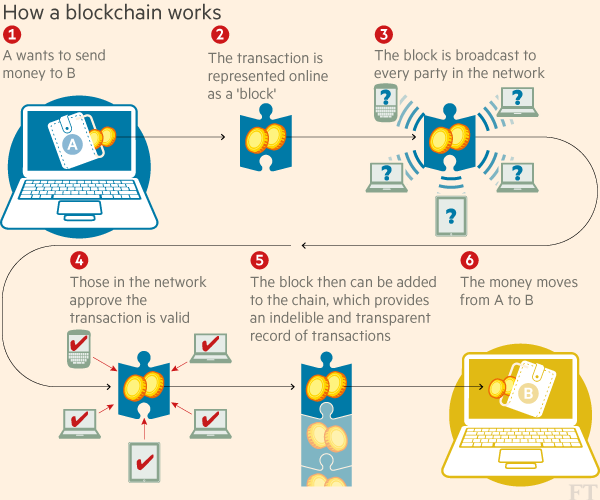Blitz News Digest
Stay updated with the latest trends and insights.
Blockchain: The Invisible Backbone of Tomorrow's Economy
Discover how blockchain is shaping the future economy and why it's the unseen force driving innovation and transformation.
How Blockchain is Transforming Traditional Industries
Blockchain technology is revolutionizing traditional industries by enhancing transparency, security, and efficiency. In sectors such as finance, supply chain management, and healthcare, the implementation of blockchain has led to significant improvements in how transactions are conducted and data is managed. For instance, in the finance sector, blockchain enables faster and more secure cross-border payments, reducing the need for intermediaries that often slow down the transaction process and increase costs. Moreover, the immutable nature of blockchain ensures that all transactions are recorded accurately, helping to prevent fraud and building trust among users.
Additionally, in supply chain management, blockchain provides real-time tracking of goods, allowing companies to monitor their products at every stage of the supply chain. This not only increases accountability but also reduces losses due to theft or mismanagement. In healthcare, blockchain facilitates the secure sharing of patient records among authorized professionals, enhancing patient care and protecting sensitive information. As more industries recognize the potential of blockchain, we can expect a transformative shift that will redefine operational paradigms and foster innovation across various sectors.

Exploring the Role of Smart Contracts in the Future of Business
Smart contracts are poised to revolutionize the way businesses operate, offering a decentralized approach that enhances transparency, security, and efficiency. By leveraging blockchain technology, these self-executing contracts contain predefined rules set in code, which automatically enact agreements when conditions are met. This eliminates the need for intermediaries, reducing costs and speeding up transaction times. As companies increasingly seek to optimize operations and reduce risks, the adoption of smart contracts is likely to become more prominent, paving the way for a new era of trust and cooperation within the business landscape.
Moreover, the potential applications of smart contracts extend beyond simple transactions to complex business processes. Industries such as real estate, finance, and supply chain management can greatly benefit from this technology. For instance, in real estate, smart contracts can streamline property sales by automatically executing deeds upon payment confirmation, while in supply chains, they can enhance traceability and compliance by automatically recording shipments and payments. As more organizations recognize the advantages of smart contracts, we can anticipate a future where contractual disputes are minimized, and business agreements are executed with unmatched efficiency.
What Are the Key Benefits of Blockchain Technology for the Global Economy?
Blockchain technology offers numerous benefits that can significantly enhance the global economy. One of its key advantages is the ability to provide transparency in transactions. By allowing all participants in the network to access a shared ledger, blockchain eliminates the need for intermediaries, reducing the potential for fraud and increasing trust. Furthermore, the decentralized nature of blockchain means that data is not controlled by a single entity, fostering a more equitable economic environment.
Another critical benefit of blockchain technology is its potential to improve efficiency across various sectors. With traditional systems often plagued by slow processing times and high transaction costs, blockchain streamlines operations through real-time validation and automation via smart contracts. Moreover, by reducing the need for multiple reconciliations among parties, businesses can save time and resources, ultimately contributing to a more robust and agile global economy.